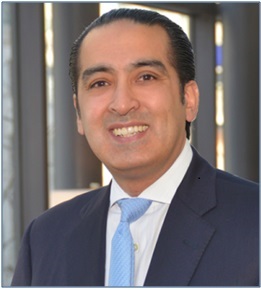The SJI Board of Directors met on April 23, 2018, at the St. Louis County, Missouri, Courthouse to make decisions on quarterly grant applications and awarded a total of 13 new grants.
A Strategic Initiatives Grant (SIG) was awarded to the National Center for State Courts (NCSC) to support a Natural Language Processing initiative for state courts. Natural Language Processing (NLP) is a field of computer science, artificial intelligence, and computational linguistics that employs predictive analysis and machine learning, and focuses on the interaction between computers and both written and spoken language. NLP has become useful for a variety of legal tasks, most prominently as the primary technique employed in e-discovery to identify documented related to a specific query based on keywords or phrases. Although courts have vast repositories of legal documents, they have been slow to adopt NLP technologies. This project will support the use of NLP for court operations in two distinct areas: 1) triage of civil cases into appropriate case processing pathways; and; 2) quality control for high-volume dockets to ensure principals of procedural due process. For civil case triage, the NCSC will work with general jurisdiction courts that participated in the Civil Justice Initiative (CJI) automated civil case triage project, to use NLP to identify and extract key terms and characteristics from the case pleadings and develop a more robust triage model than was possible using a case management system. For quality control over high-volume documents, the NCSC will work with one or more limited jurisdiction courts to identify inaccurate or missing information from case documents in consumer debt collection or other high-volume dockets that would signal the need for increased judicial review. The project will be guided by an 8-member Advisory Committee consisting of the Conference of State Court Administrators/National Association for Court Management/NCSC Joint Technology Committee (JTC), the Court Information Technology Officers Consortium (CITOC), and other subject matter experts.
A Project Grant was awarded to the Missouri Judiciary to support a Circuit Realignment Plan. The plan will include: recommendations for changes to the geographical boundaries and territorial jurisdiction of the judicial circuits; a statement on the numbers and boundaries of the proposed judicial circuits, together with a map of the proposed judicial circuits; a current judicial weighted workload model, clerical weighted workload model, judicial duties and travel time; and other information deemed relevant by the Missouri Judicial Conference.
Seven (7) Technical Assistance (TA) Grants were awarded: The 4th Judicial Circuit of Florida to increase access to family court forms; the Kentucky Administrative Office of the Courts for a criminal case management assessment in Jefferson County; Yakima County, Washington, Superior Court for a calendaring and case management project; the National Association of Presiding Judges and Court Executive Officers (NAPCO) to update and promote the 2005 monograph titled, Key Elements of an Effective Rule of Court on the Role of the Presiding Judge in Trial Courts; the Berrien County, Michigan, Trial Court for a strategic planning project; the Hawaii Judiciary for a plain language English translation and training initiative; and the 37th Judicial Circuit of Alabama for a caseload assessment.
Four (4) Curriculum Adaptation and Training (CAT) Grants were awarded: the National Judicial College (NJC) for a judicial webcasts series; the NJC for a judicial podcast series; the Tennessee Administrative Office of the Courts to develop a curriculum for establishing business courts; and the 8th District Court of Michigan for an implicit bias/procedural fairness education program for judges and staff.
The next deadline for grant applications is August 1, 2018 (FY 2018, 4th quarter).


